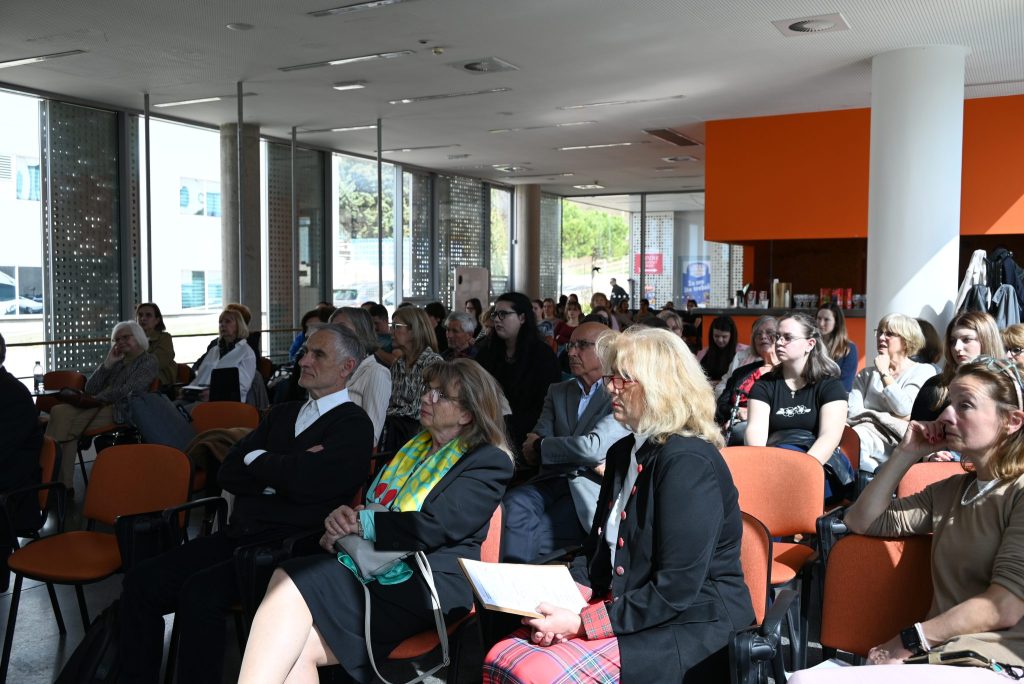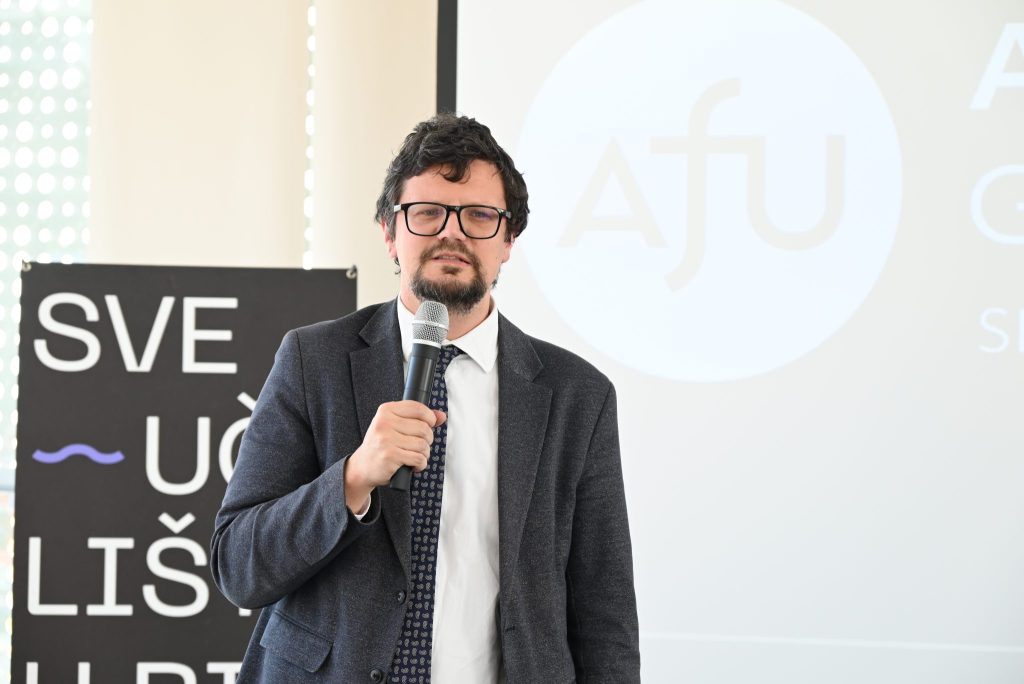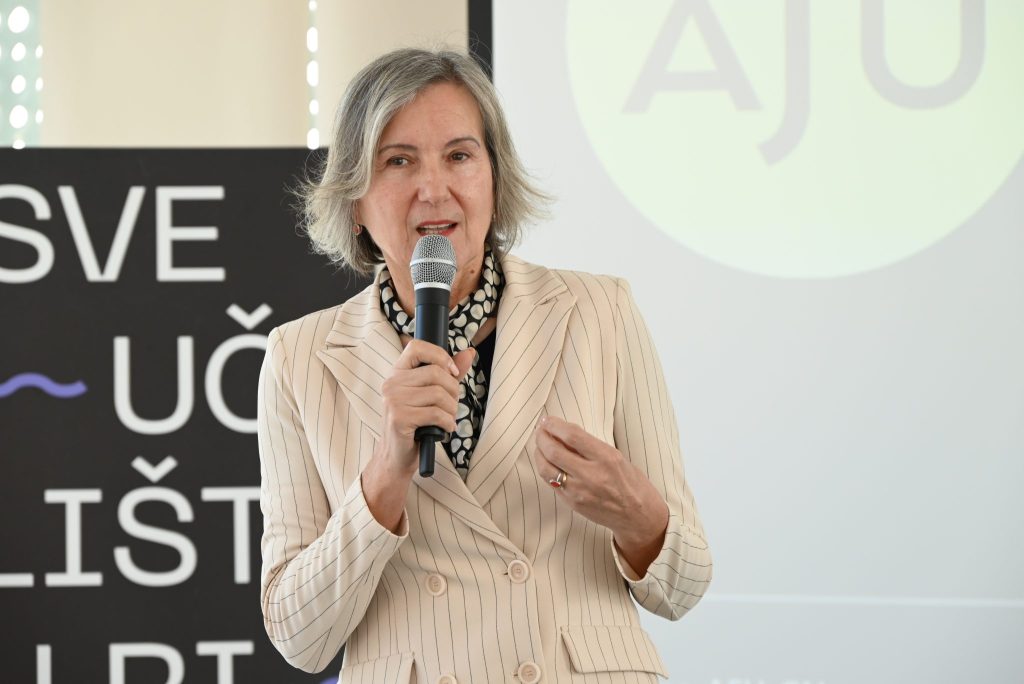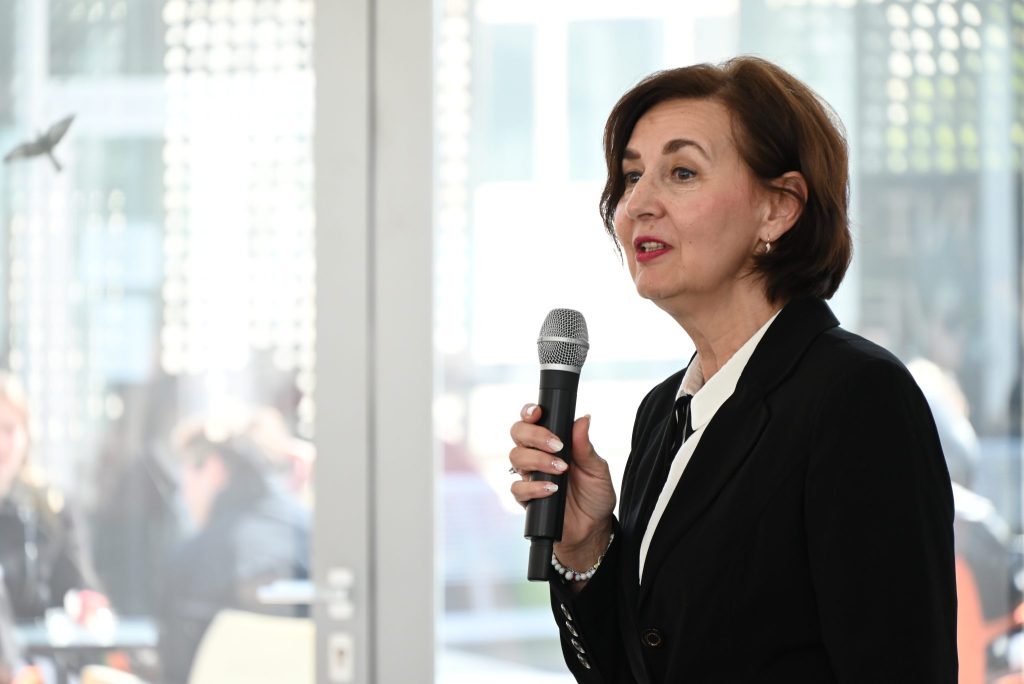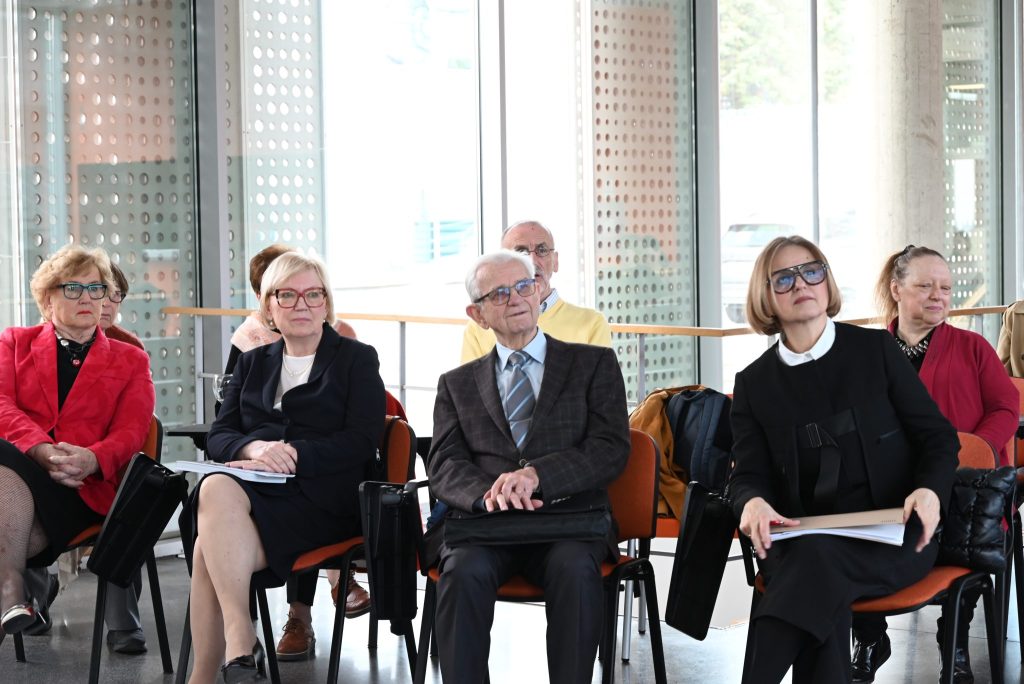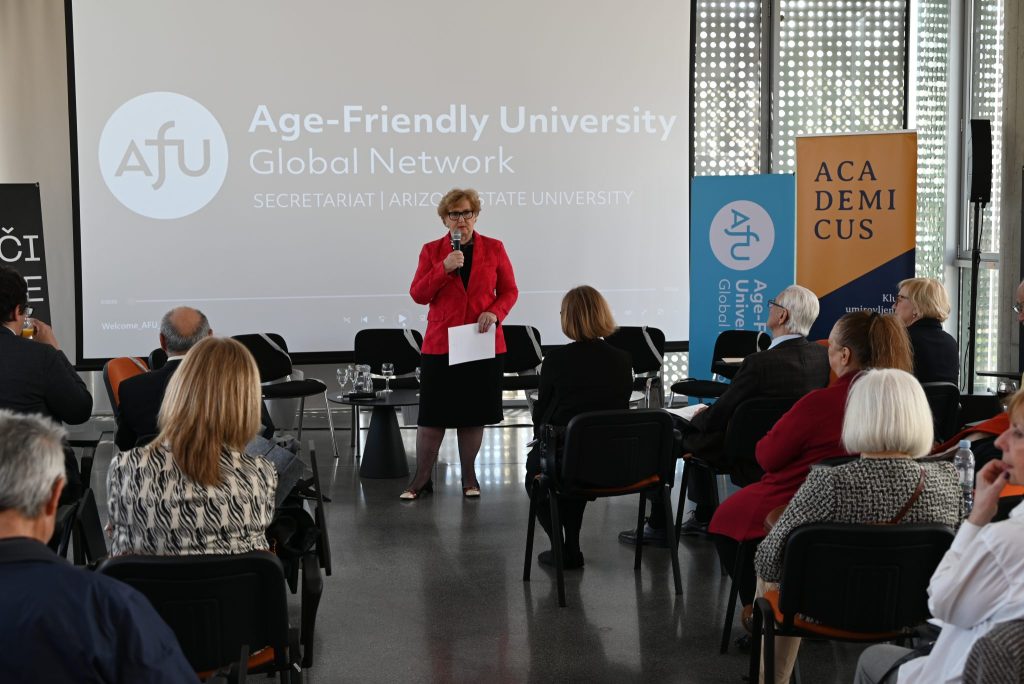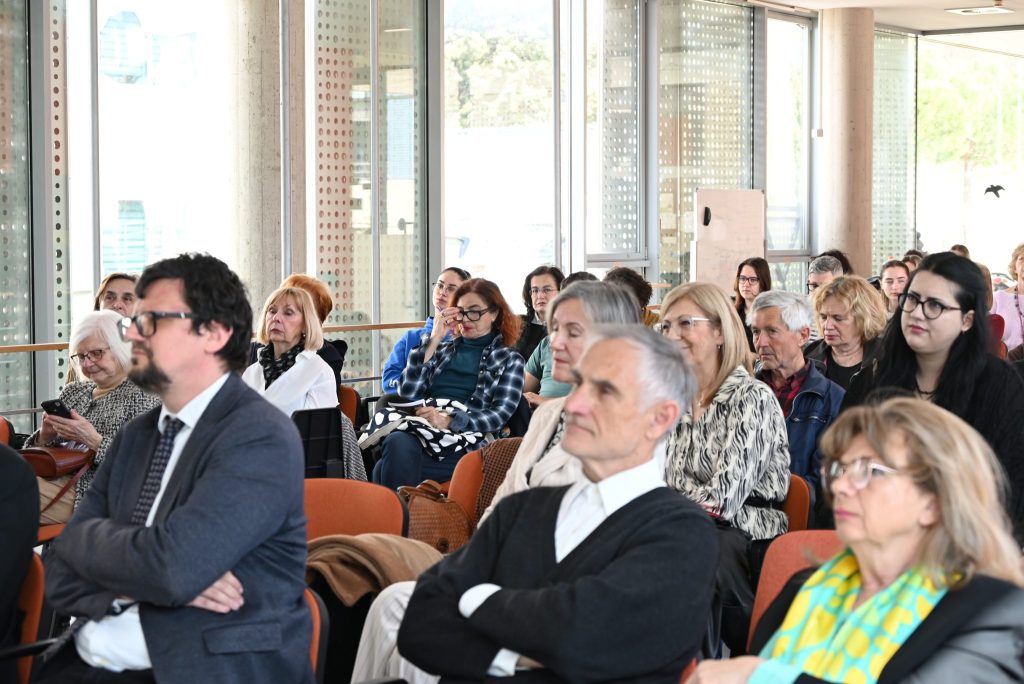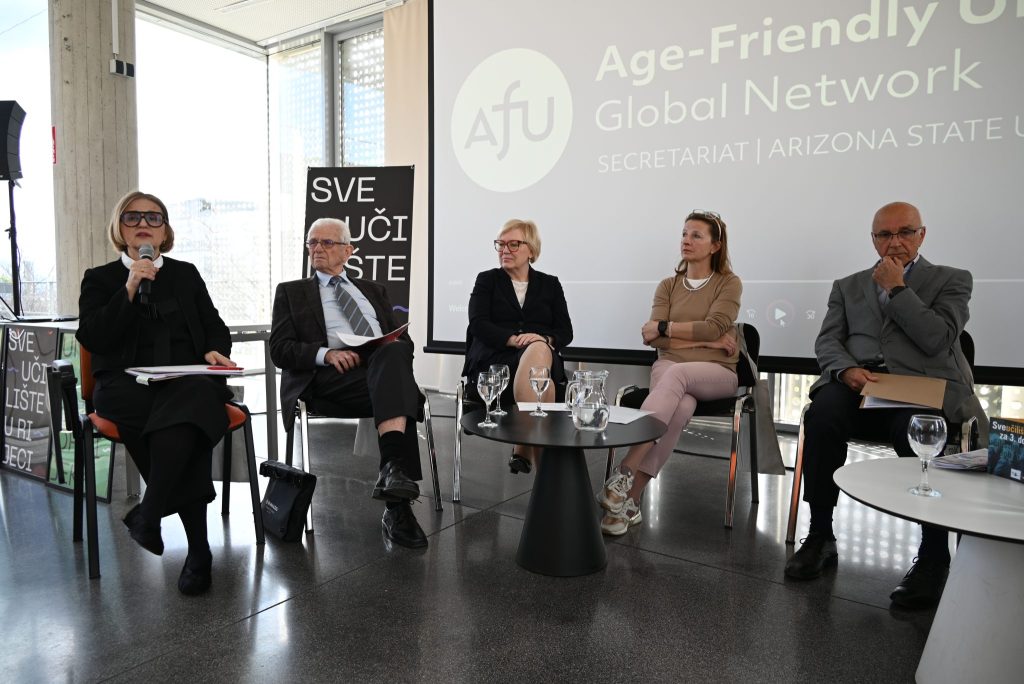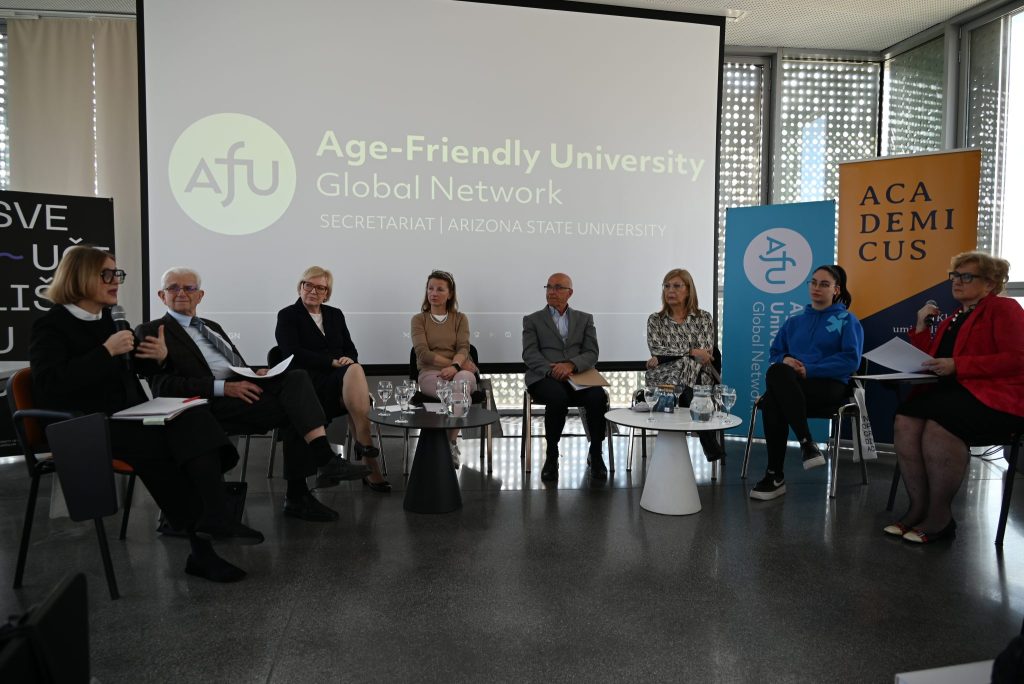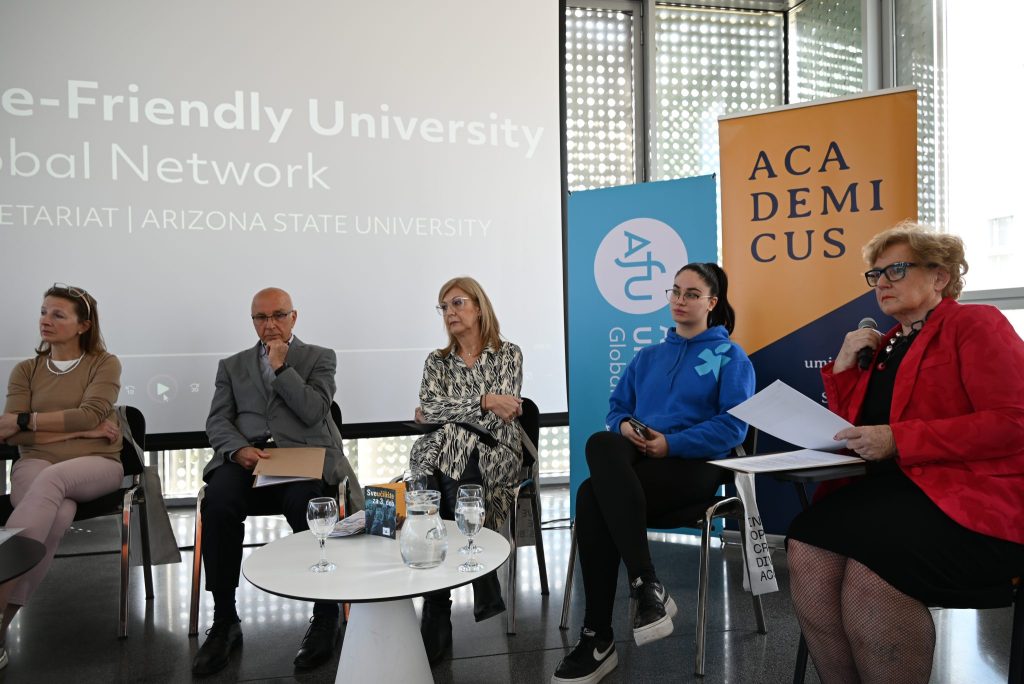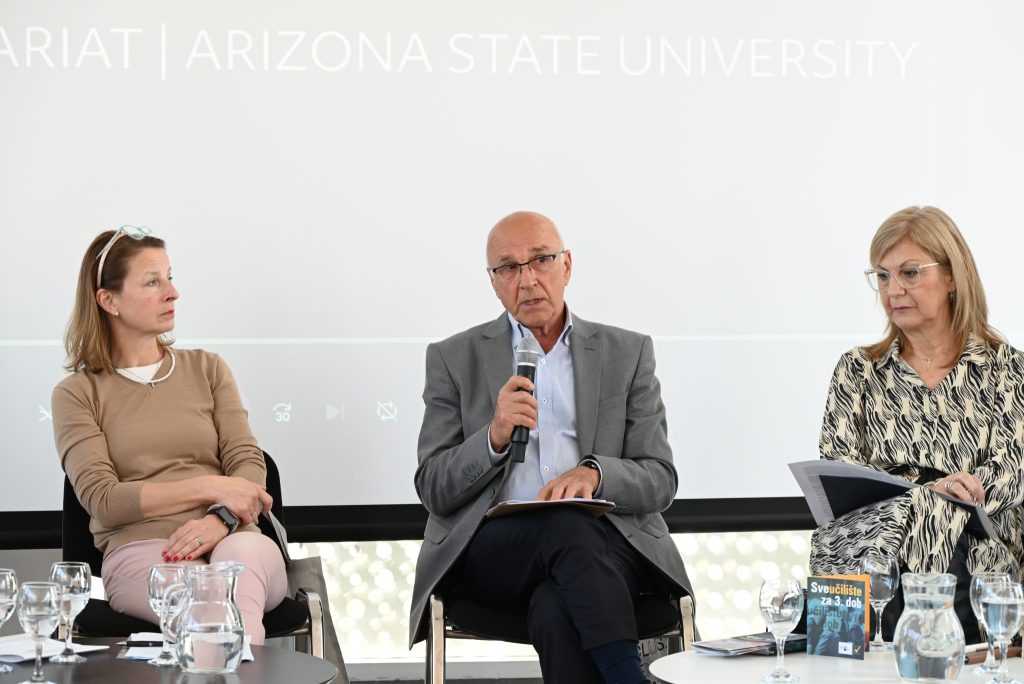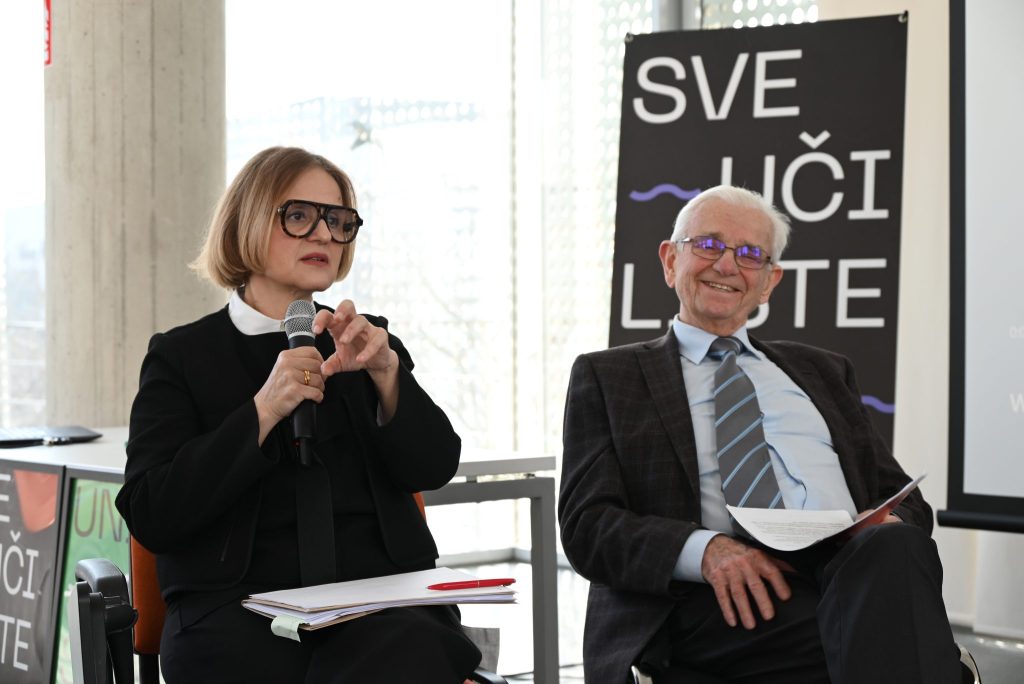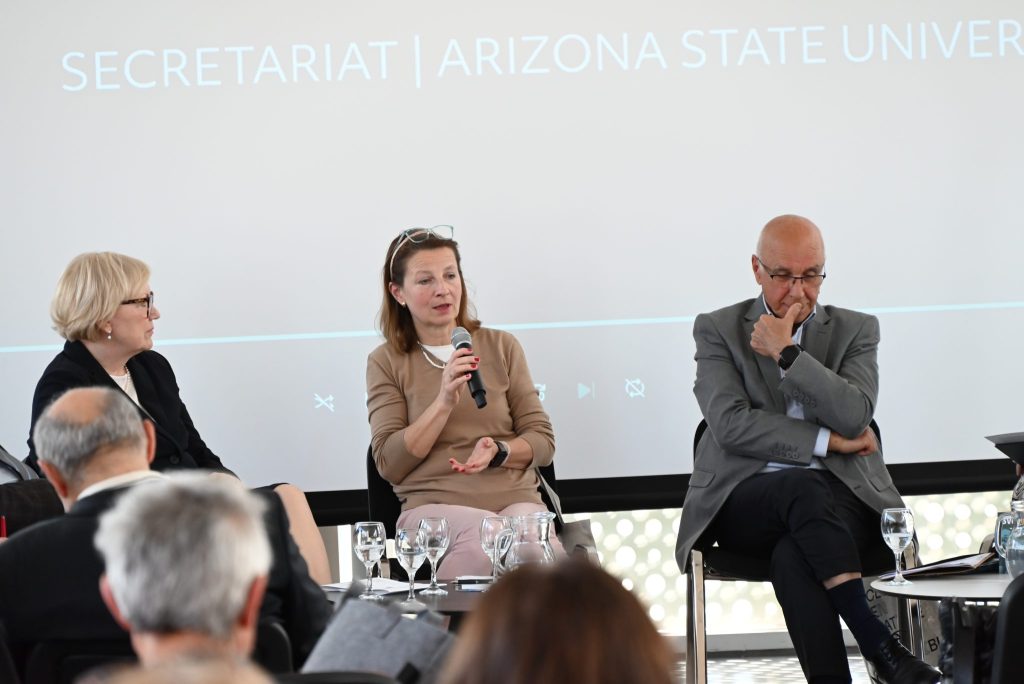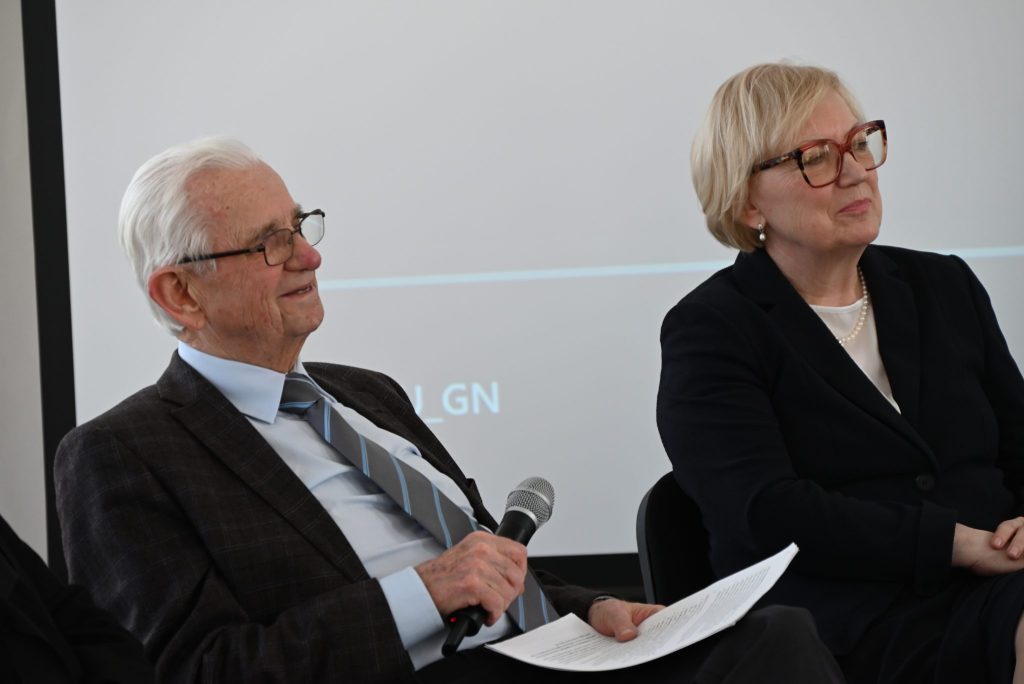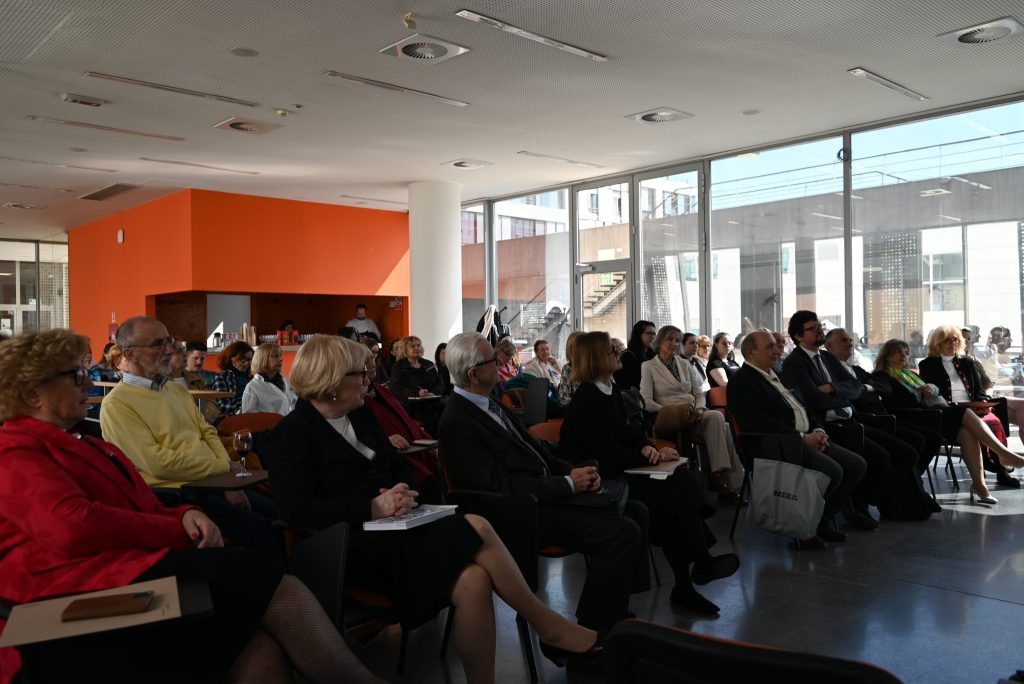As part of the ‘Concluding’ programme, the University of Rijeka hosted a panel discussion titled ‘A New Chapter in the Age-Friendly University Global Network: Challenges and Opportunities’. The University of Rijeka is the first and so far the only Croatian university officially recognized by the Age-Friendly University Global Network (AFU-GN), and by organizing this panel discussion, it wanted to highlight the value of the silver and golden generations in co-creating age-inclusive policies and innovative approaches. The panel discussion was an opportunity to discuss strategies and key guidelines for the implementation of the 10 principles of the Age-Friendly University Global Network based on scientific research on aging, the postulates of lifelong learning, and intergenerational cooperation.
The following delivered their opening remarks:
Prof. Snježana Prijić Samaržija, Ph.D., Rector of the University of Rijeka,
Assoc. Prof. Aleksandar Maršalevski, Ph.D., President of the Association of University Professors and Other Scientists in Zagreb,
Dragica Marač, M.Sc. Psych., Head of the Department for Social Policy and Youth of the Primorje-Gorski Kotar County,
Karla Mušković, M.D., Head of the Department for Health, Social Protection, and Life Quality Improvement, City of Rijeka.
The speakers and audience members were also greeted by Aaron Guest, PhD, MPH, MSW, assistant professor at Arizona State University, gerontologist, and Chair of the AFU-GN Secretariat, who praised the University of Rijeka’s efforts and dedication throughout the application process, and extended his congratulations on behalf of the Network.
To discuss the era of the so-called ‘silver’ economy, the panel discussion gathered various speakers, i.e. members of the academia from Rijeka and abroad, active and retired university professors, as well as students, namely:
Prof. Snježana Prijić Samaržija, Rector of the University of Rijeka,
Bruno Grbac, professor emeritus, member of the AFU Working Group at UNIRI and member of the Executive Board of the Academicus Club,
Peter Glavič, professor emeritus, Centre for Distinguished Professors and Higher Education Teachers of the University of Maribor,
Assoc. Prof. Lučka Lorber, Ph.D., Deputy Head of the Centre for Distinguished Professors and Higher Education Teachers of the University of Maribor,
Assoc. Prof. Anamarija Kejžar, Ph.D., ”Blue Faculty”/Faculty of Social Work, University of Ljubljana,
Prof. Sanja Smojver Ažić, Ph.D., Faculty of Humanities and Social Sciences in Rijeka, Head of the ‘University for the 3rd Age’ programme, and
Ela Novosel, Acting President of the Student Union of the University of Rijeka.
During the discussion, the speakers agreed that it is necessary to value the contribution of older generation and retirees more, especially those who can and want to work, mostly because of their extensive experience, which is often irreplaceable. The elderly already make up about 30% of the population in many countries and cities in Europe, and therefore their potential must not and cannot be ignored. To do so, the University of Rijeka promotes and relies on three key stakeholders: the ‘University for the Third Age’ programme, the Academicus Club, and the Council of Professors Emeriti, which has also been given its place in the University Statute.
As a member of the YUFE Alliance, the University of Rijeka will soon take over the management of the Alliance’s inclusivity programmes, which opens up even more space for a stronger fight against ageism, i.e. discrimination against older people and increasing their inclusion in society. During the Q&A section, the participants proposed reaching out to the Croatian Rectors’ Conference, aiming to amend regulations on the activities of retired professors.
As pointed out by the moderator, Jasna Krstović, Rector’s Advisor and President of the Academicus Club, the AFU-GN’s recognition is by no means permanent – UNIRI’s membership has been approved for a five-year cycle, which means that it must adopt and implement its action plan to the best of its knowledge to justify and retain the title of an age-friendly university.
